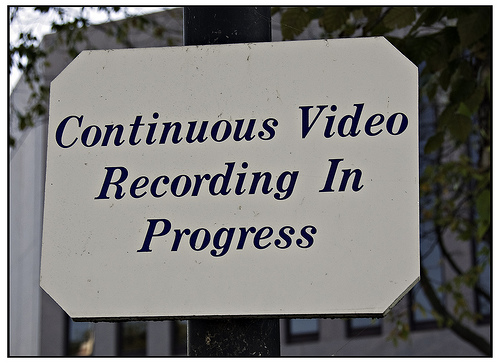
The Chris Drew travesty: Why should police be treated differently than other citizens? If this Illinois law was on the books in California, for instance, would Scott Olsen be a household name? Or other Occupy incidents, like the various pepper spraying videos? If police are doing their job, they shouldn’t be worried about a spectator videoing their actions and if they are doing something questionable, citizens should be able to collect evidence of police wrongdoing.
There are rumblings that the law could be thrown out as vague, or unconstitutional. When a Cook County jury in August acquitted a woman of violating Illinois’ strict eavesdropping law, an unassuming man with wire-rimmed glasses and wispy white hair sat in the gallery, quietly taking notes.
Chris Drew had good reason to keep an eye on the case — he’s facing trial on the same felony charge of eavesdropping on a public official, which carries up to 15 years in prison.
An artist whose ’60s upbringing instilled a deep respect for questioning authority, Drew, 61, is accused of making an illegal audio recording of Chicago police during a 2009 arrest for selling art on a downtown street without a permit.
Drew intended the incident to be a test of the city’s permit laws. But now his case has wound up at the forefront of a much bigger effort to challenge the constitutionality of Illinois’ eavesdropping law, which makes it illegal to audio-record police without their consent, even when they’re performing their public duties. […]
Source: b12partners.net
